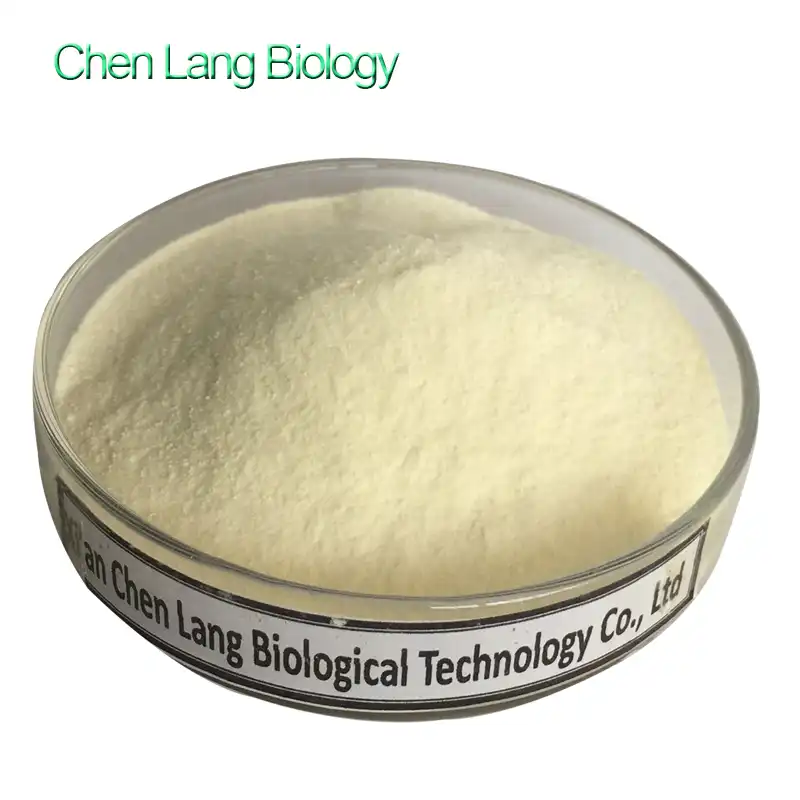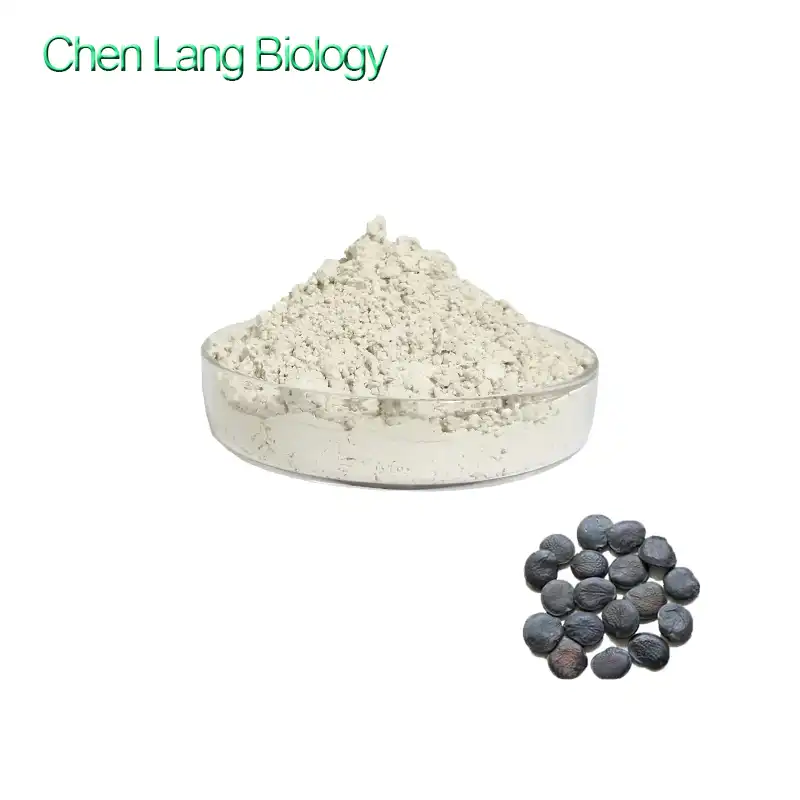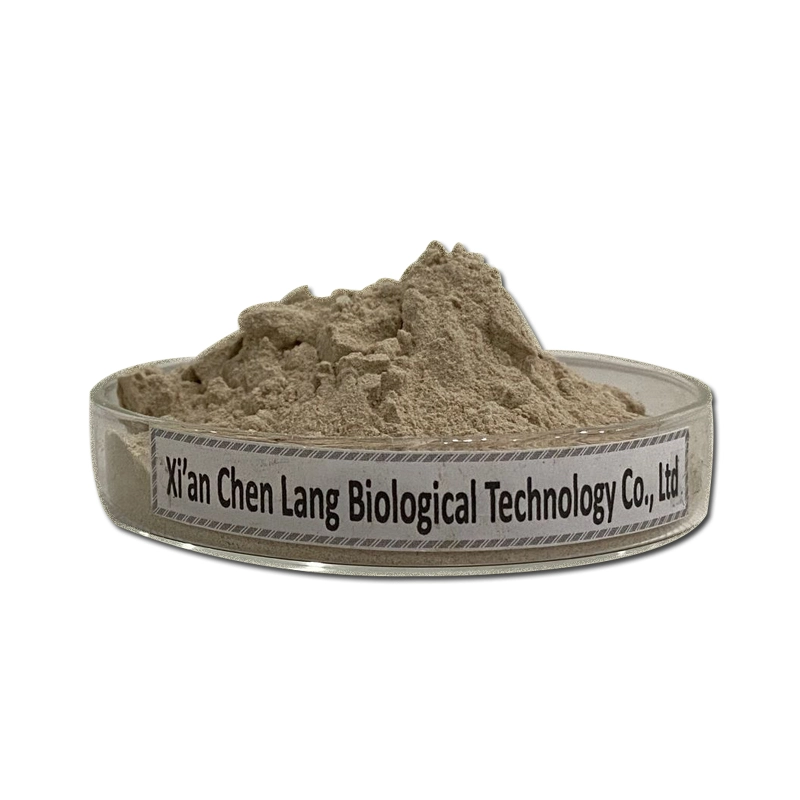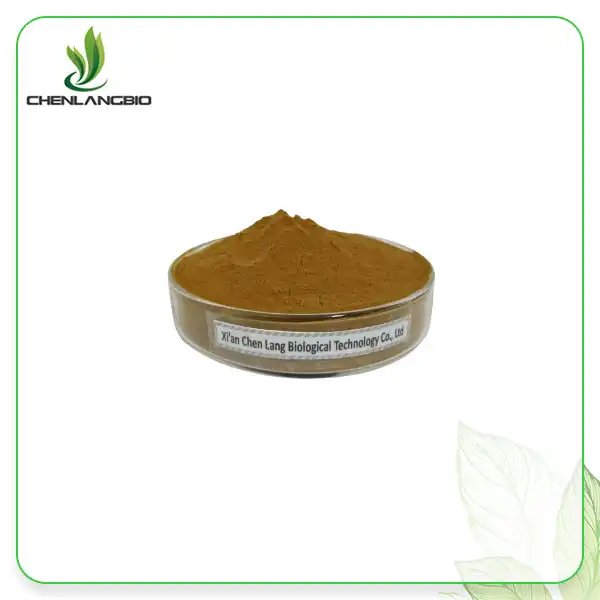Is Magnesium Ascorbyl Phosphate Safe for Sensitive Skin
2024-07-25 14:08:15
Magnesium Ascorbyl Phosphate (Guide) is a steady, water-dissolvable subordinate of L-ascorbic acid commonly known for its lighting up and hostile to maturing properties. Be that as it may, for people with touchy skin, the topic of wellbeing and potential aggravation is essential. This blog investigates whether Guide is reasonable for touchy skin and how it tends to be really integrated into a skincare schedule.
What Is Magnesium Ascorbyl Phosphate?
Introduction
Magnesium Ascorbyl Phosphate (Guide) is a subordinate of L-ascorbic acid that is utilized in numerous skincare items. It is leaned toward for its soundness and capacity to convey the advantages of L-ascorbic acid without the bothering that frequently goes with ascorbic corrosive.
Stability and Solubility
Magnesium Ascorbyl Phosphate is known for its stability compared to pure Vitamin C (ascorbic acid), which tends to oxidize and lose efficacy when exposed to air and light. This makes MAP a preferred choice for those looking to incorporate Vitamin C into their skincare routine without the hassle of instability.
Benefits for the Skin
MAP offers a couple of benefits, including:
Brightening: It helps with backing off faint spots and, shockingly, out tone.
Cell support Affirmation: MAP gives protection against free progressives, which can hurt skin cells and accelerate developing.
Collagen Mix: It maintains the making of collagen, which is key for staying aware of skin adaptability and diminishing crimps.
Suitability for Sensitive Skin
Unlike pure Vitamin C, MAP is less likely to cause irritation, making it a better option for those with sensitive skin. Its gentle formulation helps to deliver the benefits of Vitamin C without causing redness or discomfort.
How Does Magnesium Ascorbyl Phosphate Compare to Other Forms of Vitamin C?
Introduction
When choosing a Vitamin C product, it's important to understand how different forms compare, especially for sensitive skin. This section compares MAP with other popular forms of Vitamin C.
Ascorbic Acid
Advantages:
Highly effective in brightening and anti-aging.
Strong antioxidant properties.
Disadvantages:
Unstable and prone to oxidation.
Can cause irritation and redness, particularly for sensitive skin.
Sodium Ascorbyl Phosphate
Advantages:
Stable and less irritating than ascorbic acid.
Effective in treating acne due to its antimicrobial properties.
Disadvantages:
May be less potent in terms of collagen synthesis compared to ascorbic acid.
Tetrahexyldecyl Ascorbate
Advantages:
Oil-soluble, allowing deeper penetration into the skin.
Stable and less likely to cause irritation.
Disadvantages:
More expensive compared to other forms of Vitamin C.
Limited research on long-term efficacy.
Why MAP Is Ideal for Sensitive Skin
Magnesium Ascorbyl Phosphate stands out as an ideal choice for sensitive skin due to its balance of efficacy and gentleness. Its stability ensures consistent results, and its water-soluble nature makes it easy to incorporate into various skincare formulations.
What Are the Potential Side Effects of Using Magnesium Ascorbyl Phosphate?
Introduction
While MAP is generally well-tolerated, it is important to be aware of potential side effects to ensure safe use, especially for sensitive skin.
Common Side Effects
Mild Irritation: Although rare, some individuals may experience mild irritation or redness, particularly when first introducing MAP into their routine.
Dryness: MAP can cause dryness in some cases. It is important to use a good moisturizer to maintain skin hydration.
Increased Sun Sensitivity: As with other forms of Vitamin C, MAP can increase the skin's sensitivity to the sun. Sunscreen use is essential to protect the skin from UV damage.
How to Minimize Side Effects
Patch Test: Always perform a patch test before applying MAP to your face to check for any adverse reactions.
Start Slowly: Begin with a lower concentration of MAP and gradually increase as your skin builds tolerance.
Moisturize: Use a hydrating moisturizer to prevent dryness and maintain the skin's barrier function.
Sun Protection: Apply sunscreen daily to protect your skin from increased UV sensitivity.
Real-World Experiences
Many users with sensitive skin report positive experiences with MAP, noting its gentleness and effectiveness. However, individual responses can vary, and it is important to monitor your skin's reaction.
How Should You Incorporate Magnesium Ascorbyl Phosphate into Your Skincare Routine?
Introduction
Incorporating MAP into your skincare routine requires understanding the correct application methods and compatibility with other products.
Step-by-Step Guide
Step 1: Cleanse: Start with a gentle cleanser to remove impurities and prepare your skin for MAP.
Step 2: Tone: Use a toner to balance your skin's pH and enhance the absorption of MAP.
Step 3: Apply MAP: Apply a MAP serum or cream evenly across your face. If using a serum, a few drops are usually sufficient. Massage gently into the skin.
Step 4: Moisturize: Follow with a hydrating moisturizer to lock in the benefits of MAP and keep your skin well-hydrated.
Step 5: Sunscreen: In the morning, finish with a broad-spectrum sunscreen to protect your skin from UV damage.
Tips for Best Results
Consistency: Use MAP consistently, as regular application is key to seeing results.
Patience: Be patient, as it may take several weeks to notice significant improvements.
Monitor: Pay attention to your skin's response and adjust usage as needed. If you experience irritation, consider reducing the frequency of application or using a lower concentration of MAP.
Compatibility with Other Ingredients
MAP can be used with a variety of other skincare ingredients, including:
Hyaluronic Acid: Enhances hydration and works well with MAP.
Niacinamide: Improves skin texture and reduces the appearance of pores.
Peptides: Support collagen production and complement the anti-aging benefits of MAP.
Retinol: Can be combined with MAP, but should be introduced gradually to avoid irritation.
How Effective Is Magnesium Ascorbyl Phosphate for Sensitive Skin?
Introduction
MAP is renowned for its efficacy in brightening and anti-aging, but how effective is it specifically for sensitive skin? This section explores the benefits and real-world results for those with sensitive skin.
Brightening and Hyperpigmentation
MAP is effective in reducing hyperpigmentation and brightening the skin. For individuals with sensitive skin, it provides these benefits without the harsh side effects often associated with pure Vitamin C.
Anti-Aging Benefits
MAP supports collagen production, which helps to reduce the appearance of fine lines and wrinkles. Its gentle formulation ensures that sensitive skin can benefit from these anti-aging effects without irritation.
Antioxidant Protection
MAP offers robust antioxidant protection, helping to neutralize free radicals and protect the skin from environmental damage. This is particularly beneficial for sensitive skin, which can be more susceptible to oxidative stress.
Real-World Experiences
Many individuals with sensitive skin have reported positive outcomes with MAP. Users often note improvements in skin texture, tone, and overall radiance. The gentle nature of MAP makes it a favored choice for those with delicate skin types.
Scientific Evidence
Research supports the efficacy of MAP in promoting collagen synthesis and providing antioxidant protection. Studies have shown that MAP can improve skin elasticity and firmness, making it a valuable ingredient for anti-aging skincare.
Conclusion
Magnesium Ascorbyl Phosphate is a safe and effective option for sensitive skin. Its stability, gentle formulation, and compatibility with other skincare ingredients make it an excellent choice for those looking to incorporate the benefits of Vitamin C without the risk of irritation.
References
Healthline: The Benefits of Vitamin C for Skin
WebMD: Retinoids in Skin Care: What They Are and How They Work
Paula’s Choice: Vitamin C for Skin: What Does It Do?
Dermstore: How to Use Vitamin C and Retinol Together
Allure: How to Layer Your Skincare Products in the Right Order
The Ordinary: Guide to Direct Acids and Retinoids
Harvard Health: Skin Care 101: The Best Skin-Care Routine for Your Skin Type
Journal of Cosmetic Dermatology: Comparative Studies on the Efficacy of Vitamin C Derivatives
American Academy of Dermatology: Retinol: What to Know
EWG Skin Deep: Ingredient Safety Profile for Retinol
For more personalized skincare advice and product recommendations, feel free to contact us at admin@chenlangbio.com.
Send Inquiry
Related Industry Knowledge
- How Can I Use Mung Bean Peptide Powder in My Diet?
- Is Kopexil Effective for Hair Growth?
- Is Kopyrrol Powder Water-soluble
- What is 4-Butylresorcinol Used for
- Is 4-Butylresorcinol Safe
- Can Praziquantel Be Dissolved in Water
- What is 5-Aminolevulinic Acid Used For
- When should I take Tribulus Terrestris Extract Powder for bodybuilding?
- Is Echinacea Extract Powder A Natural Antibiotic
- What Is The Ingredient Isoleucine










